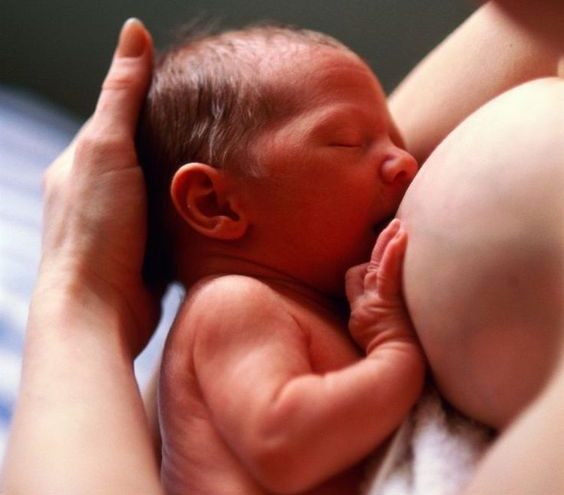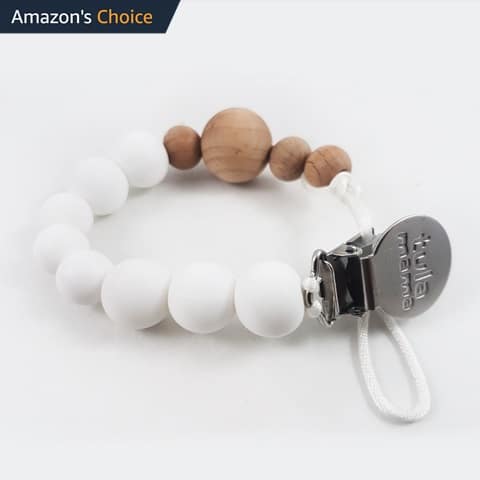If you’ve just had a baby, it is likely you’re encountering a little discomfort in your breast. If your breasts are feeling really full and hard and painful, you’re dealing with breast engorgement. It can be a little scary, especially if this is your first baby, and you don’t understand what’s happening and how to relieve it.
In this post, you can expect the following:
Contents
What is Breast Engorgement
In layman’s terms – the definition of engorgement is when your body produces milk for your baby, but your baby is not drinking it. Your breasts get filled up with so much milk, making it hard and painful because the milk is not being released.
Instead of feeling soft, your areola will typically feel hard (like your forehead), and the skin may appear shiny. Your nipple may increase in diameter and become flat and taut, which will make latching very hard.
Engorgement can happen immediately after birth, in the days or weeks postpartum, and anytime during breastfeeding. It can also range in being mildly discomforting to actually being very painful. Some moms may have a low-grade fever.
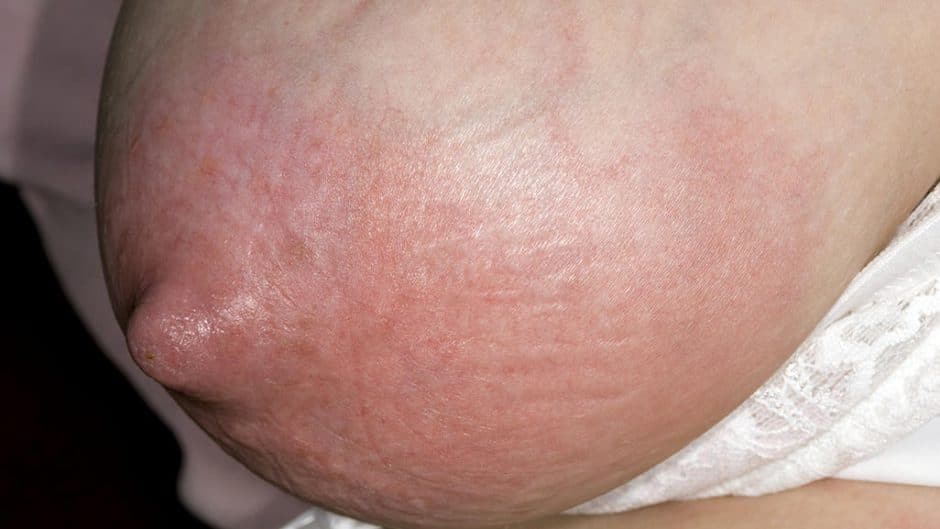 A number of hormones, such as progesterone, cortisol, oxytocin, and insulin, work together before and after delivery to trigger your breasts to produce and let down breast milk. In most cases, breast milk is available for the baby within 2-5 days of delivery. This is typically when breast engorgement can happen the first time.
A number of hormones, such as progesterone, cortisol, oxytocin, and insulin, work together before and after delivery to trigger your breasts to produce and let down breast milk. In most cases, breast milk is available for the baby within 2-5 days of delivery. This is typically when breast engorgement can happen the first time.
As full production of breast milk begins, the body naturally increases blood flow to your breasts. Breast engorgement happens as blood, breast milk, and other fluids accumulate in the breasts. Without a place for the overfill to go, all these fluids begin to leak into your surrounding breast tissue and cause fullness, hardness, inflammation, soreness, and very tight and flat nipples. This is why breast engorgement hurts.
Engorgement subsides within 12-48 hours if properly treated.
What Causes Breasts Engorgement?
Breast engorgement can happen for a number of different reasons, including:
- You are unable to breastfeed. Perhaps you are at a social event, or perhaps your baby is sleeping.
- Your breastfed baby isn’t feeding properly because of difficulty latching or sucking.
- You have an overabundant milk supply. Perhaps you are producing way more milk than your baby needs.
- There are changes to your baby’s feeding schedule, such as skipping a feeding.
- You are returning to work and unable to feed your baby as before.
How To Get Breast Engorgement Relief – 7 Helpful Tips
If you’re breastfeeding and suffer engorged breasts, your priority will be to relieve the discomfort and inflammation by emptying your breasts.
Breastfeeding
 The easiest solution is to breastfeed your baby. You should not be afraid to wake your baby for an unscheduled feeding if your breast fullness becomes too uncomfortable.
The easiest solution is to breastfeed your baby. You should not be afraid to wake your baby for an unscheduled feeding if your breast fullness becomes too uncomfortable.
Pumping
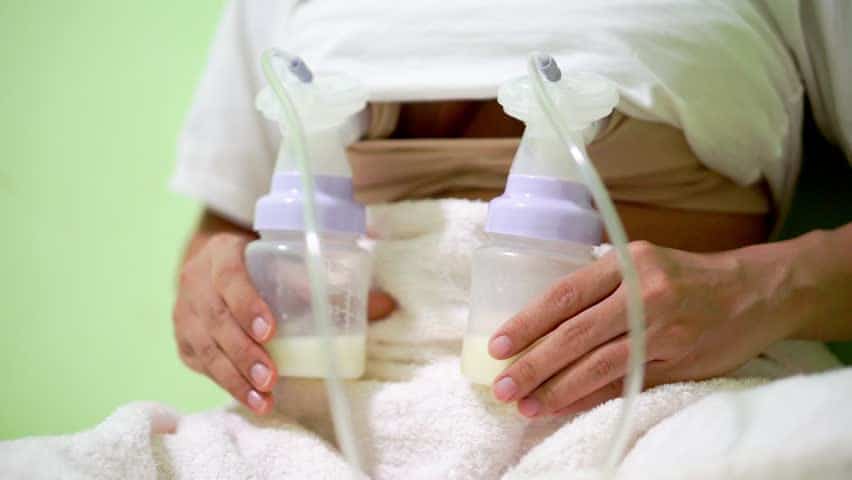 The next best option is to use a breast pump
The next best option is to use a breast pump![]() to get engorgement relief. Some moms find that a single use of a breast pump
to get engorgement relief. Some moms find that a single use of a breast pump![]() is effective in reducing pain and inflammation. They then return to frequent breastfeeding as the main way to manage engorgement.
is effective in reducing pain and inflammation. They then return to frequent breastfeeding as the main way to manage engorgement.
Depending on your insurance, you can probably get a free breast pump. Most insurance covers it so definitely check it out!

Cold Compress
Use a cold compress for 10 minutes after feedings to reduce inflammation and swelling.
Nursing Bras
When it comes to bras, it is debatable. Some moms feel most relief when they can take off their bras, others feel a well-fitted, supportive nursing bra![]() makes them feel better. See which one works best for you.
makes them feel better. See which one works best for you.
If you do choose to go with a nursing bra![]() , avoid tight-fitting bras because they can lead to plugged ducts and mastitis.
, avoid tight-fitting bras because they can lead to plugged ducts and mastitis.
Green Cabbage
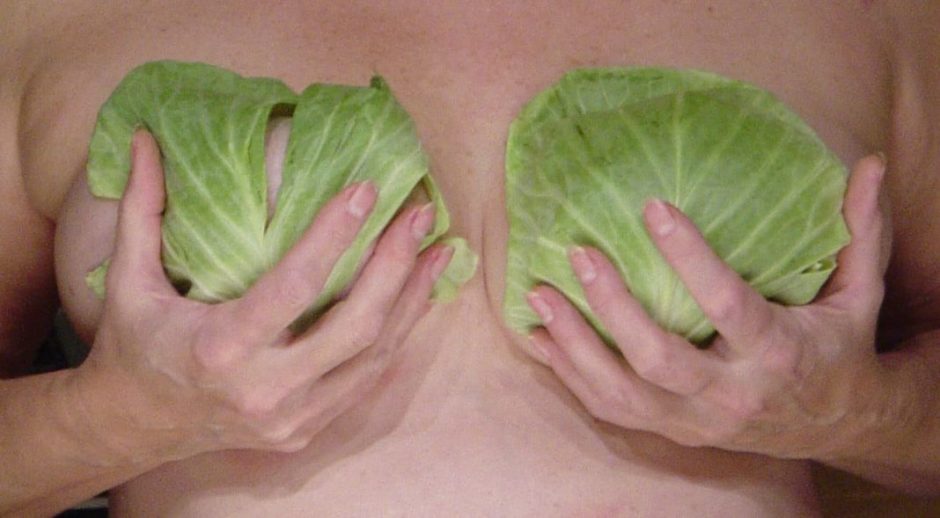 Yes, this is an actual thing!
Yes, this is an actual thing!
To use this method, wash your green cabbage leaves and apply it to your breasts between feedings.
If you are dealing with an oversupply of milk, be careful to not use it too often or too long. Please limit your use to around 20 minutes, no more than 3 times per day. Stop using it as your engorgement subsides because extended use of cabbage leaves can decrease your milk supply.
If you are weaning your baby or you are planning not to breastfeed, leave the leaves on your breasts until they wilt, and apply fresh leaves as often as needed for comfort.
Why use green cabbage leaves for engorgement?
There is little research on this, but women have been using green cabbage leaves to treat mild to severe engorgement, for ages. There is evidence that cabbage may work quicker and more effectively than ice packs.
The anti-inflammatory properties of chilled green cabbage leaves have made them a common holistic way for non-breastfeeding moms to alleviate the pain and swelling of engorging and dry up their milk supply.
Doctors and Pain Medicine
If engorgement is unbearable, ask your doctor about medications like Tylenol or Ibuprofen to reduce pain and inflammation. Do keep in mind that if you have a fever higher than 101° F or severe pain, this may be a breast infection. Call your doctor for advice.
Lactation Specialist
If engorgement becomes a frequent occurrence, you may need help from a lactation specialist. If you are continually needing to pump and freeze milk because you are overproducing, this overabundance can signal the body that it needs to make even more milk and increase blood flow, which will ultimately make the engorgement worse.
How To Breastfeed When You’re Engorged
You’re sore and uncomfortable. The first thing you probably want to do is have your baby nurse. However, if you’re really engorged, your breasts may be so hard and your baby may not even be able to get a good latch. Here are a few ideas to relieve yourself before you start nursing:
- You can do a hand expression or pump a little bit just to soften your breast. This will enable your baby to get a better latch. Be careful not to pump too much. Pump just enough to soften your breasts. If you pump too much and not enough milk is left for your baby, this will signal to your body that it is not making enough milk, which means you’ll produce more milk, which will then make engorgement worse.
- Warm your breasts up with a warm shower or moist compress just prior to feedings. This may help the milk begin to flow. However, keep it short because using heat for more than 5 minutes may make swelling worse.
- Begin feedings with the most engorged breast.

Image Credit: Unknown - Do encourage a good latch. If your breasts are a little softer (after expressing by hand or pumping for a minute or so), you should be able to get a good latch.
- Gently massage and compress your breast when your baby pauses between sucks. This can help drain your breasts, leaving less milk behind.
- A gentle breast massage and relaxation techniques may also help improve milk flow and reduce engorgement. Start at the chest wall and gently massage your feeding breast in a downward motion toward the nipple. Be careful not to massage upward.
How To Prevent Breasts Engorgement
Aside from just being an uncomfortable and painful issue to deal with, your engorged breasts can actually lead to some serious complications, including infection and plugged ducts. Such issues can easily derail or even end your breastfeeding journey. So while it’s good to know how to deal with engorged breasts, it’s even better to know how to prevent it.
- Starting from the moment your baby is born, feed your baby as often as demanded. It may seem like a lot but start with at least eight feedings in that first 24 hours. Your baby is actually getting very little if any milk at this time, but it will help set your body on an appropriate milk production course.
- Make sure that your baby latches properly. You may want to experiment with different holds and positioning for the most effective latch.
- Avoid setting a time limit for feedings.

- Allow your baby to finish the first breast before offering the other side. Switch sides when your baby pulls off or falls asleep.
- Consider sleeping in the same room with your baby to make nighttime feeding schedules easier and more consistent.
- Avoid offering your baby any other fluids than breast milk unless directed to do so by their pediatrician for nutrition purposes.
- If your baby is not nursing well, you will need to pump frequently to maintain milk supply and minimize engorgement.


- Get a free breast pump through your insurance, then pump for relief. BUT DO NOT PUMP TOO MUCH. Too much pumping will encourage overproduction, which will make engorgement worse.
- If you work or you have obligations outside your home, pump regularly while away from your baby.
- Go braless during feedings and pumps to avoid constricting the breast’s blood and milk flow.
- Drinking fewer liquids will not prevent engorgement.
Engorgement With A Premature Baby
If your baby was premature or other complications interfere with breastfeeding, a hospital grade pump can help with engorgement until your baby can breastfeed.
You’re Weaning Your Baby Or Not Planning To Breastfeed
As mentioned above, the easiest way to reduce engorgement is to feed your baby or pump. However, if you are planning not to breastfeed, you should actually avoid this. Yes, it is very painful and all you want is to feel relief from engorgement, but if you pump or express milk, it will signal your body to produce more milk.
If milk is being expressed or pumped, your body sees that as the milk being used… so it produces more. Once your body realizes that the milk that it produces is not being used, the milk factory will shut down and it will dry up on its own.
Note From The Author
Engorgement is painful and uncomfortable. It feels like you are bursting and all you want is immediate relief.
It is not a pleasant thing for sure, but from mom to mom, I encourage you to try to look at this as a good thing. If you are in pain now, you’re yelling at your screen but here’s the thing – you are overproducing breastmilk, which is actually not a bad thing.
To get relief, you will need to feed your baby or pump… a lot. It is extremely inconvenient, particularly if the pain of engorgement wakes you up at night. (Now something else is keeping you from sleeping!) But if you pump regularly, you will have an abundance of milk in the freezer… which is GREAT!
- if there is ever a time when you are not available to feed your baby, you can rest assured knowing that your baby will always have enough milk to drink.
- And while it’s hard to believe now, there will likely be a time when you under-produce. If that happens, you will have a backup.
I have five children. I’ve been where you are but after the first baby, I learned to look at engorgement as a necessary inconvenience.
Good luck!
